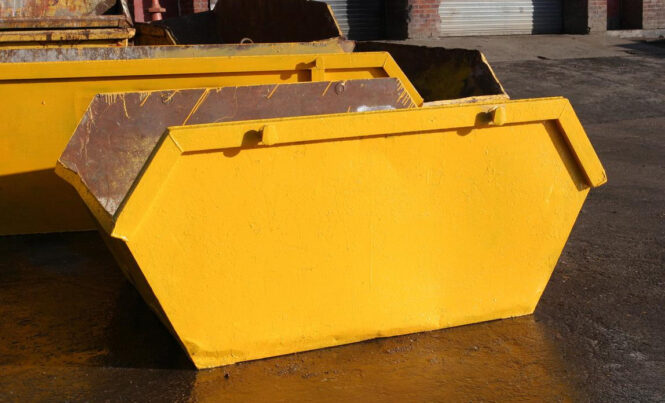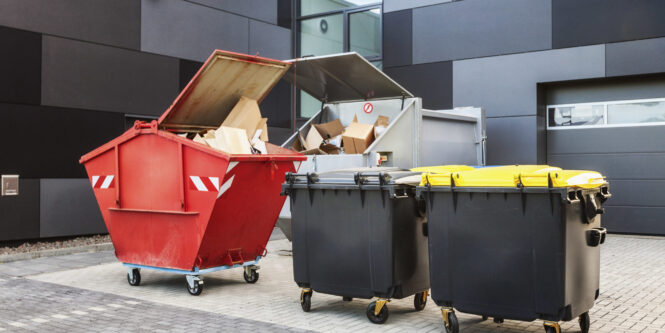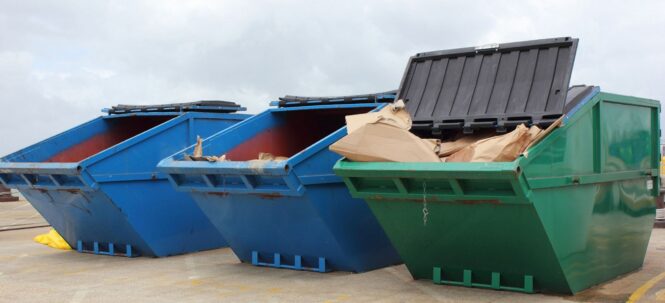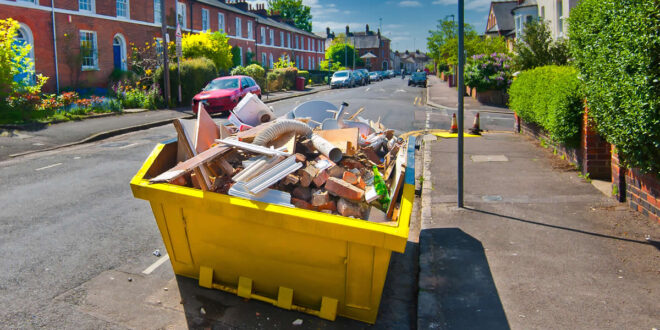Hiring a skip is a great solution when you have excess household waste or are renovating your home. They can clear a pile of waste outside your house or be used for larger furniture items that won’t fit in your car. This is particularly useful if you do not have access to your own vehicle, making a tip run impossible. There are a few key considerations to work out before you commit to your purchase.
Our skip hire guide will cover everything you need to know, from the range of sizes to the kind of waste that cannot be disposed of in a skip.
What kind of waste are you disposing of?
First, you need to know what you want to get rid of. For residential and commercial spaces, this is usually mixed waste. You could have an office clear out with bin bags and furniture items, or be spring cleaning your home and getting rid of the bric-a-brac.
There are so many types of waste that it is easier to look at what a skip will refuse to take. A standard one cannot be used for clinical waste as this requires specialist disposal. Similarly, asbestos, batteries and electrical appliances like a fridge or TV cannot be accepted. Hazardous materials, liquids and gas canisters cannot be placed in a skip either. If any of these items are in it on collection day, the company can refuse to take them.
Research companies that offer skips and compare prices

It is always best to compare different companies to find the most competitive price. While a skip is a handy way to dispose of a large, one-off load of rubbish, it is an investment and you want to make sure you are getting the best service possible.
Professional skip hire companies, like The Waste Brokerage Company, are fully accredited, licensed and insured and offer skips in every area of the UK. Their team can help you to decide which of their services is best for you and arrange all the details for skip delivery and collection.
Types of Skips Available

What type do you need for your project? The size of it you choose depends largely on the size and scale of your project. Certain sizes are more suited for certain projects than others, so it’s important to carefully consider your requirements before ordering it.
Common types available include:
- Mini – These typically hold up to 3 cubic yards of waste and are the smallest ones available. They may be the best choice for small jobs where large amounts of waste are not anticipated, such as clearing out a small room or doing some light garden work.
- Midi – They can hold up to 6 cubic yards and are commonly used for home refurbishments, de-cluttering or those doing some larger DIY projects with medium-level amounts of waste involved.
- Builders – These usually hold approximately 10 cubic yards and are ideal for transporting heavy materials such as soil, hardcore and rubble. Many builders opt for a mixed builder/midi skip when working on a building site in order to save space while easily accommodating various sizes of debris at once.
- Maxi – The largest available will typically hold 20 cubic yards or more and they are most suitable when undertaking large renovation projects or renovations that generate multiple large quantities of extremely heavy debris such as concrete blocks or large tree trunks throughout the course of the job.
Decide which size of skip you need depending on the amount of waste or debris
Each one comes with a level load. Anything above that line can be refused upon collection. For larger items such as sofas, it is worth getting the dimensions ahead of time to determine what size skip you will need.
For larger projects, such as a full garden clearance, skips up to 40 yards are available – but for smaller projects such as a bedroom clearance, 6 and 8 yard skips are available. There are many skips available between these sizes, so no matter the job you’re undertaking – there will be a skip size suitable for you.
Consider any permits needed for your area before hiring a skip
The cost of it doesn’t stop at the hire fee. Depending on where you plan to keep the skip, you may need permits from your local council. If you have a private driveway or land, this will not require a permit.
Any skip on a public road will need a hire permit. It is crucial that you have this in place before the arrival of your skip. If it will be placed in a controlled parking zone, such as a road with a single yellow line or designated residential and disabled parking spots, you will also need a parking suspension permit. Again, this will need to be organised ahead of time.
Enquire about delivery times and pick-up services offered by the company

Each company will differ in how they arrange delivery and collection. Always ask for a time slot so that you can prepare the space for it and be there when it arrives. Similarly, you want to know how long you can keep the skip and when it will be collected by the company.
So, there you have it. Everything you need to know about the skip hiring process. It’s always best practice to have a good understanding of what you will need to be disposing of so that you can save money by not hiring a skip that’s too small for your requirements.
Conclusion
Finally, always be sure that you’re adhering to any regulations or laws in place for skip hire, such as making sure you have permission from all relevant authorities if necessary or adhering to local litter laws. By keeping these precautions in mind when finalizing your plans for hire, you can rest assured that everything will go smoothly when it’s time for its arrival. We hope that this article helped you in deciding what type you need.
 Imagup General Magazine 2024
Imagup General Magazine 2024



